Publications
Articles, publications, books, tools and multimedia features from the U.S. Institute of Peace provide the latest news, analysis, research findings, practitioner guides and reports, all related to the conflict zones and issues that are at the center of the Institute’s work to prevent and reduce violent conflict.
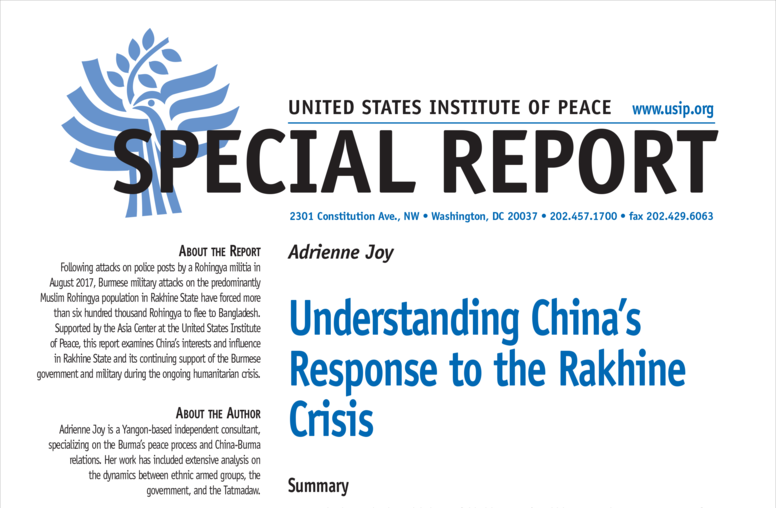
Understanding China’s Response to the Rakhine Crisis
Following attacks on police posts by an armed Rohingya militia in August 2017, reprisals by the Burmese government have precipitated a humanitarian crisis. More than six hundred thousand Rohingya have fled to Bangladesh, where they face an uncertain future. Publicly stating that the root cause of conflict in Rakhine is...
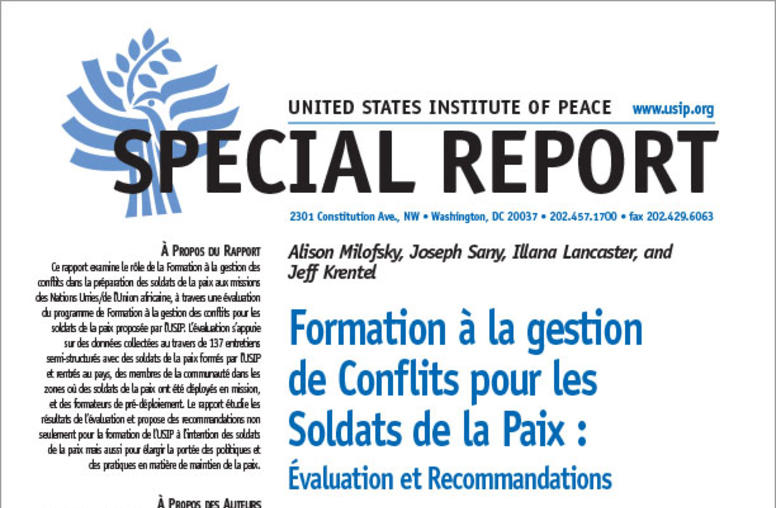
Conflict Management Training for Peacekeepers (French)
Ce rapport examine le rôle de la Formation à la gestion des conflits dans la préparation des soldats de la paix aux missions des Nations Unies/de l’Union africaine, à travers une évaluation du programme de Formation à la gestion des conflits pour les soldats de la paix proposée par l’USIP. L’évaluation s’appuie sur des données collectées au travers de 137 entretiens semi-structurés avec des soldats de la paix formés par l’USIP et rentrés au pays, des membres de la communauté dans les zones où des soldats de la paix ont été déployés en mission, et des formateurs de pré-déploiement. Le rapport étudie les résultats de l’évaluation et propose des recommandations non seulement pour la formation de l’USIP à l’intention des soldats de la paix mais aussi pour élargir la portée des politiques et des pratiques en matière de maintien de la paix.
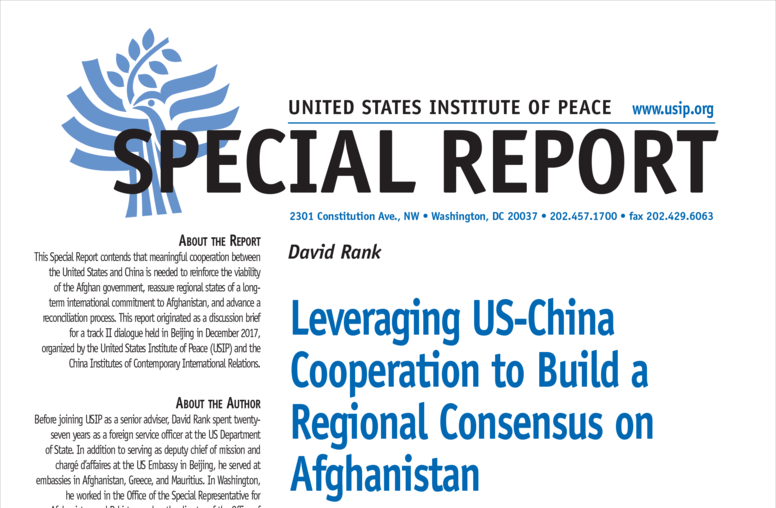
Leveraging U.S.-China Cooperation to Build a Regional Consensus on Afghanistan
The United States and China share an interest in seeing an end to the Afghan conflict that incorporates the Taliban into Afghanistan’s political system and prevents that country from becoming a safe haven for transnational terrorist groups. Yet U.S.-China cooperation on Afghanistan has been...
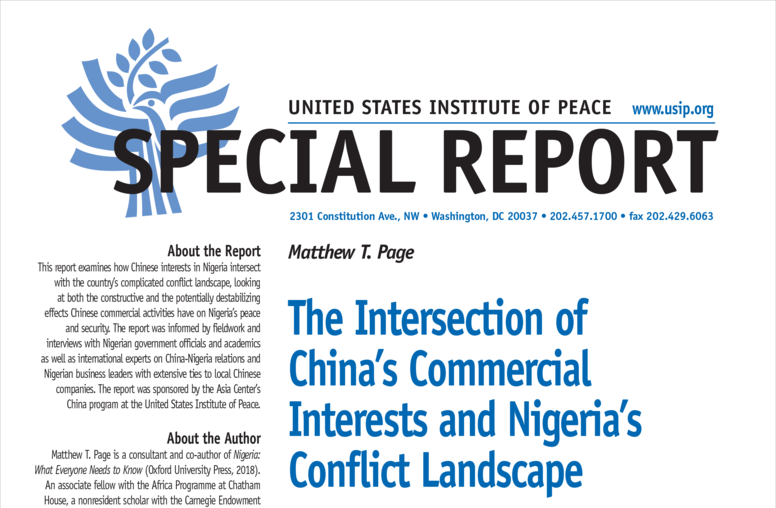
The Intersection of China’s Commercial Interests and Nigeria’s Conflict Landscape
Like Washington, Beijing has an abiding strategic interest in promoting stability and security in Nigeria—the largest economy in Africa, a major oil and gas producer, and on track to become the world’s third most populous country by 2050. Yet from the Boko Haram insurgency in its northeast to farmer-herder clashes in its Middle Belt...

Pakistan’s Approach to Navigating the Saudi-Iranian Split
Since 2015, the deteriorating relationship between Saudi Arabia and Iran—the self-appointed vanguards of Sunni and Shia Islam, respectively—has brought forth a new cold war in the Middle East. Pakistan has spent decades striking a delicate balance between the two countries, but...
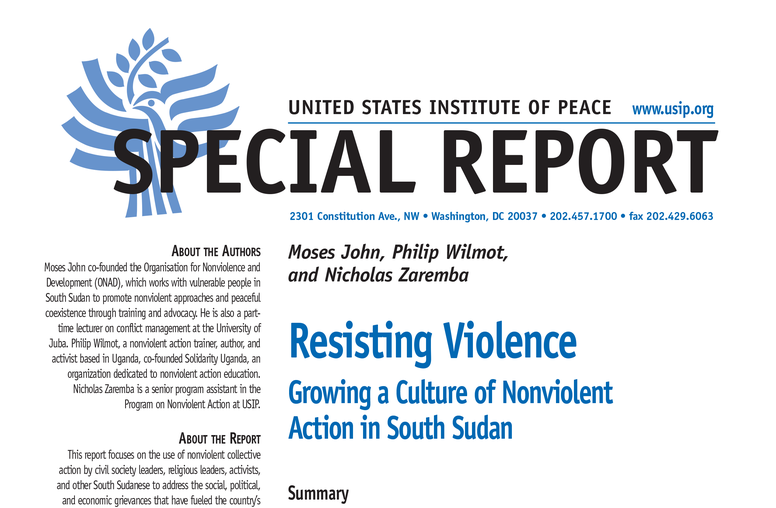
Resisting Violence: Growing a Culture of Nonviolent Action in South Sudan
Since the outbreak of civil war in December 2013, South Sudan has endured one of the worst humanitarian crises in modern times. Still, amid the constant threat of war-related violence and economic hardship, South Sudanese activists are managing to launch and sustain nonviolent movements to address the social, political, and economic grievances that have fueled the country’s ongoing conflicts.
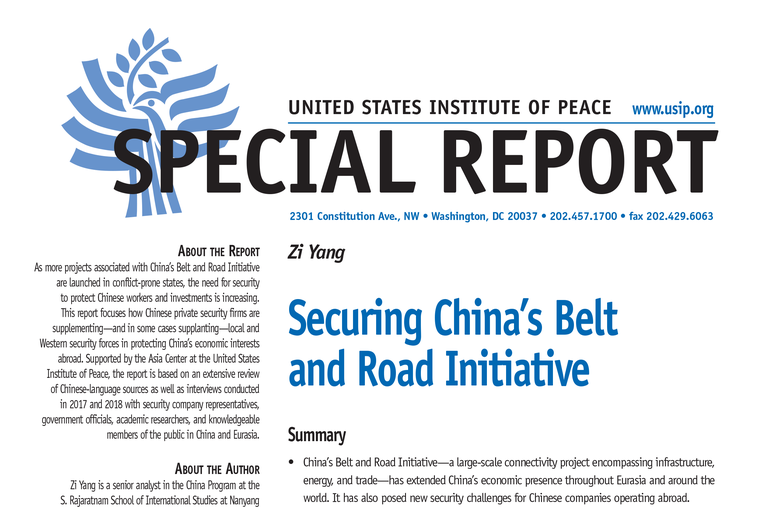
Securing China’s Belt and Road Initiative
USIP’s new Special Report provides an overview of the different security arrangements China is using to protect its overseas investments and workers, and examines how the Belt and Road Initiative is spurring the rapid growth of China’s domestic private security industry.
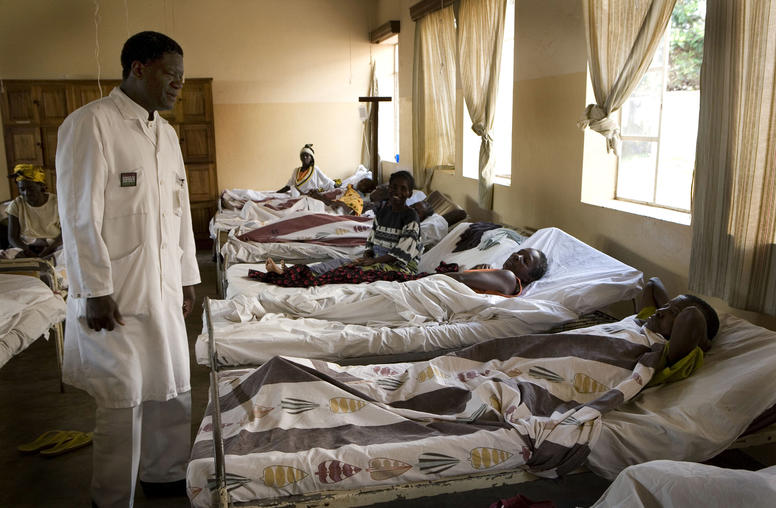
The Elusive Peace: Ending Sexual Violence during and after Conflict
Awarding the 2018 Nobel Peace Prize to advocates for survivors of wartime sexual violence, Dr. Denis Mukwege and Nadia Murad, indicates that the issue of sexual abuse has gained international recognition. This comes ten years after the adoption of the UN Security Council Resolution 1820, which declared that conflict-related sexual violence constitutes a war crime and a crime against humanity. This Special Report highlights the limited scope of the resolution, examines the connections between sexual violence and conflict, and urges key stakeholders to view sexual violence—both during conflict and after—as a threat to international peace and security.
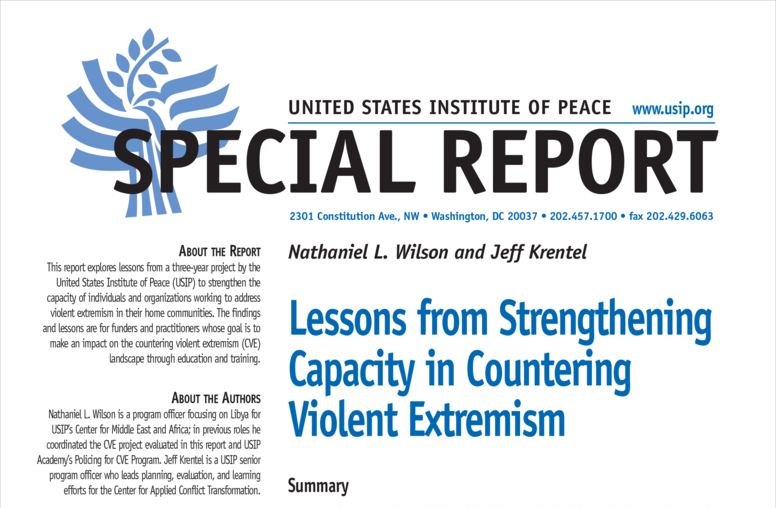
Lessons from Strengthening Capacity in Countering Violent Extremism
An evaluation of a three-year USIP program to strengthen capacity in the field to counter violent extremism revealed that effective project design, thoughtful recruitment strategies, and tailored course content are critical. Participants reported applying what they learned to either adjust existing CVE programs or develop new programs altogether. This report explores the lessons from the project for funders and practitioners to develop more effective projects.
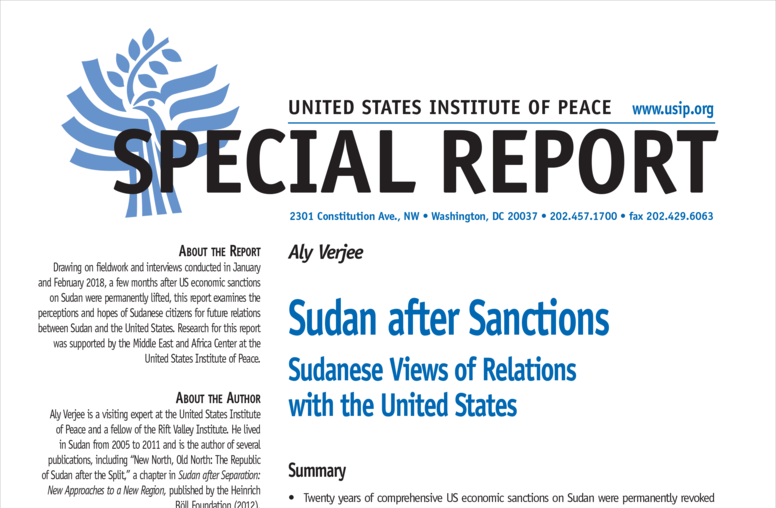
Sudan after Sanctions
In October 2017, the United States lifted a wide range of economic sanctions that had been in place against Sudan for two decades. Aly Verjee, a visiting expert at the United States Institute of Peace, recently interviewed roughly 50 Sudanese—including students, business owners, doctors, laborers, activists, and others outside the government-connected elite—on what this first step in the normalization of relations between Sudan and the United States might mean for the future of their country.